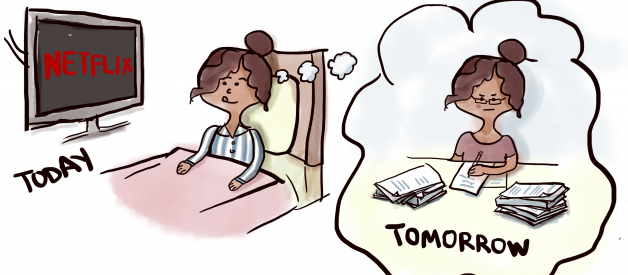Have you ever had a mounting pile of work you KNOW you need to do? There?s an important deadline looming, your boss is breathing down your neck ? all signs are pointing to you getting it done. But you put if off, turn on Netflix and fantasize about how you?re going to crush work tomorrow.
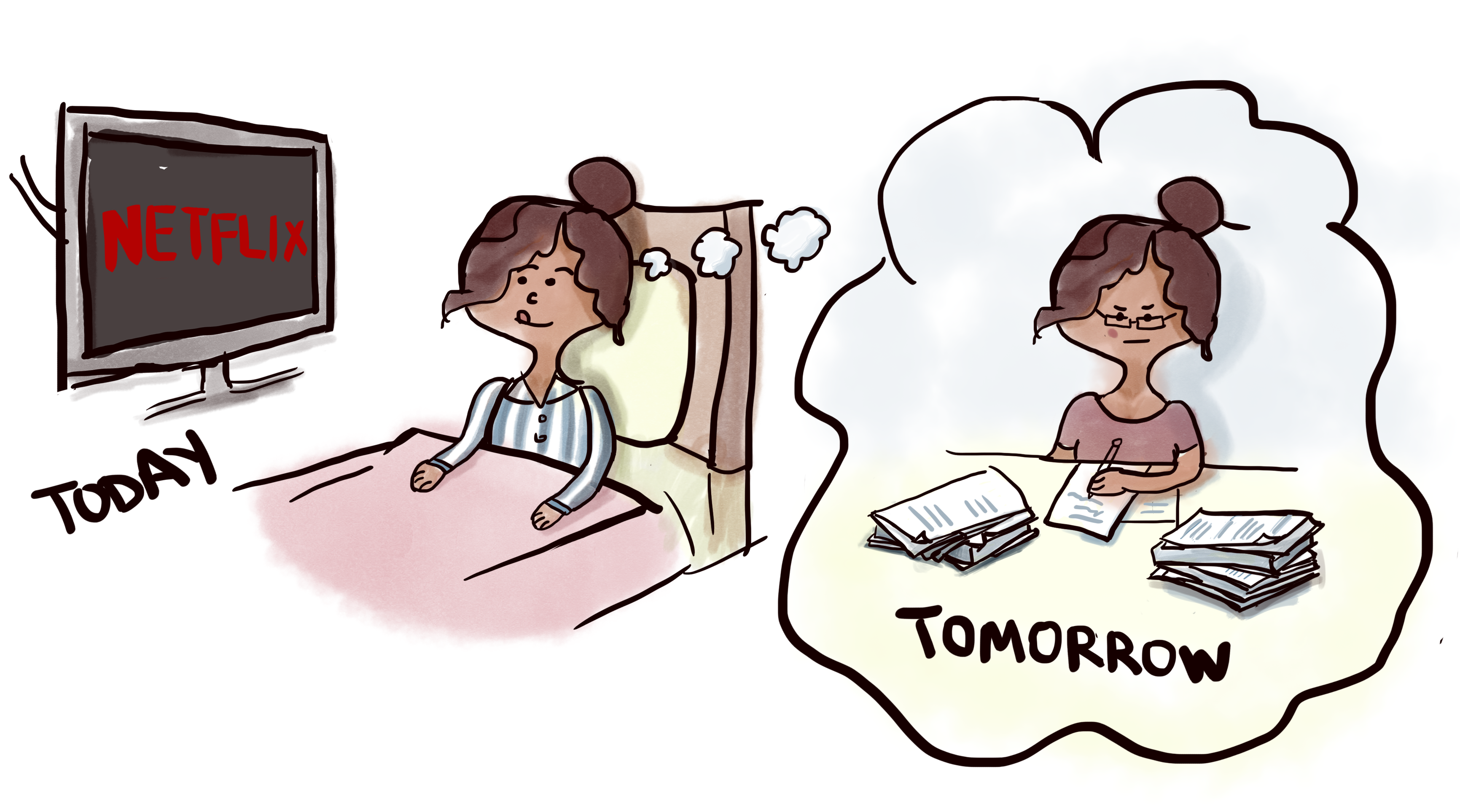
You?ve fallen victim to hyperbolic discounting.
Hyperbolic discounting is a cognitive bias, where people choose smaller, immediate rewards rather than larger, later rewards ? and this occurs more when the delay is closer to the present than the future.
Researchers run a classic experiment for it. Imagine you?re given 2 choices. Get a $100 today or $120 in a week. Here?s how most people choose.
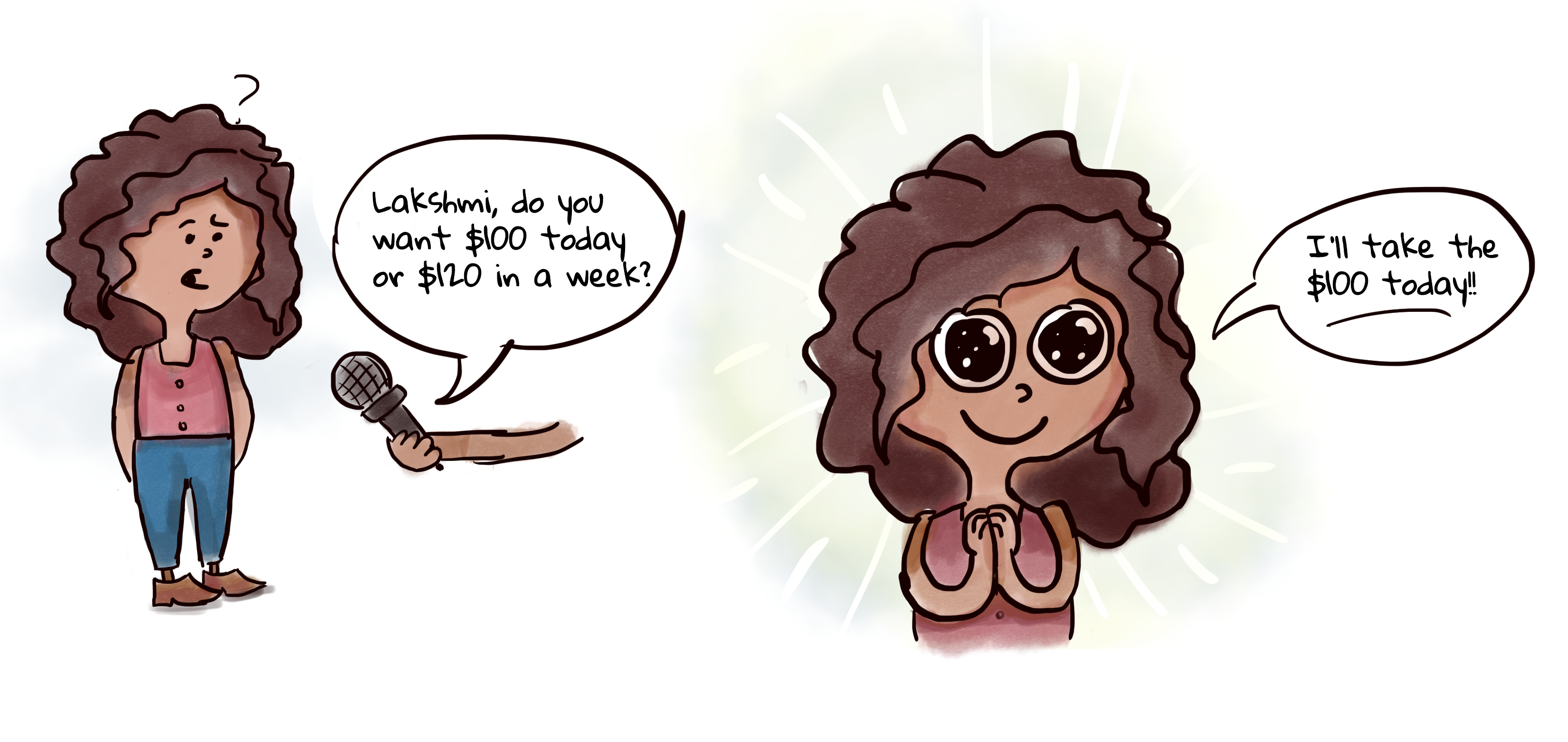
But when the same question is asked with the same 1 week interval, but a year in the future, we largely choose the bigger reward.
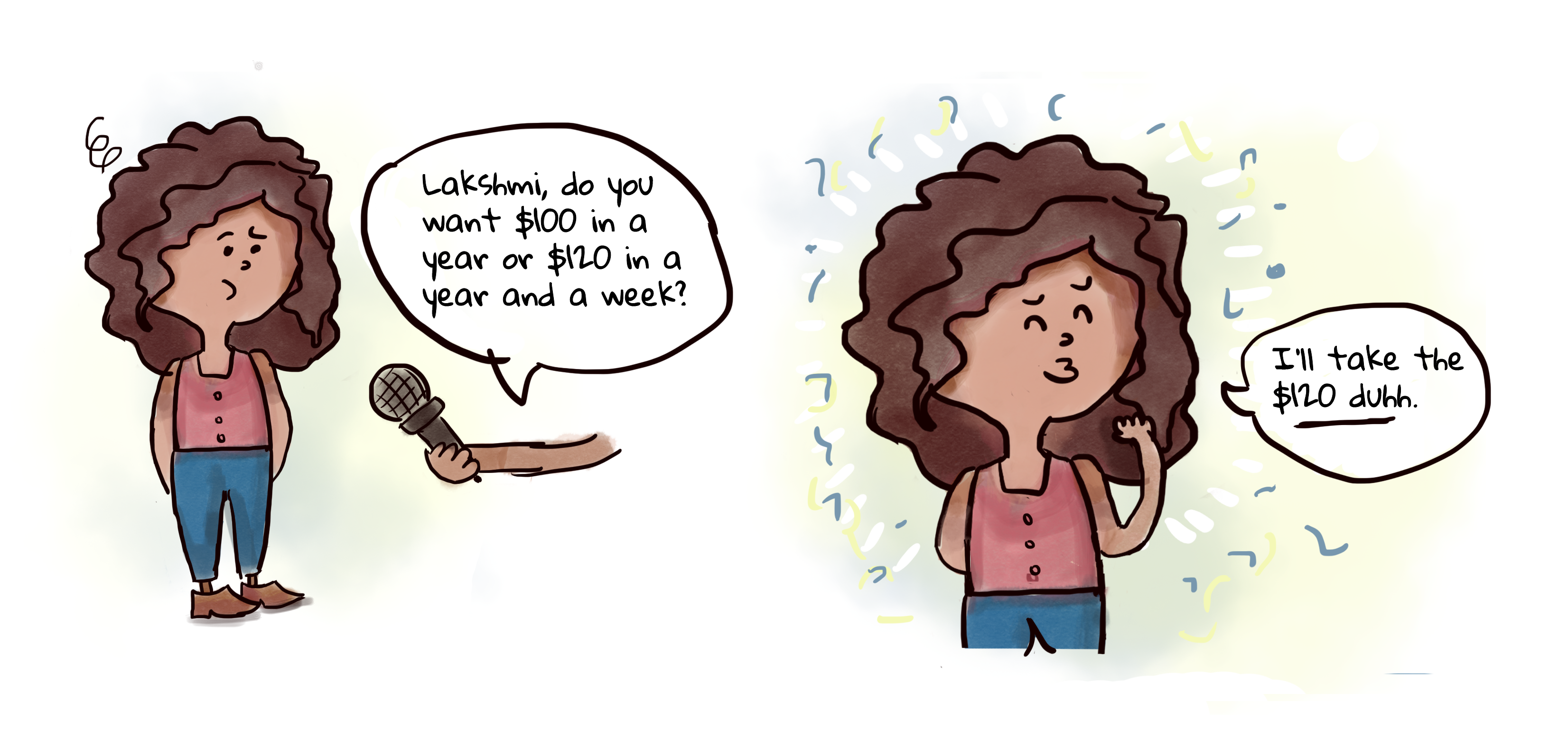
We are impatient-and prefer immediate rewards in the short term. But we?re more patient and wait for better rewards in the long term.
Unfortunately, the choices you have to make in everyday life are not as clear or easily comparable. Say you?re going on vacation in a couple of months . How do you choose between enjoying a cookie today versus looking good in the summer?
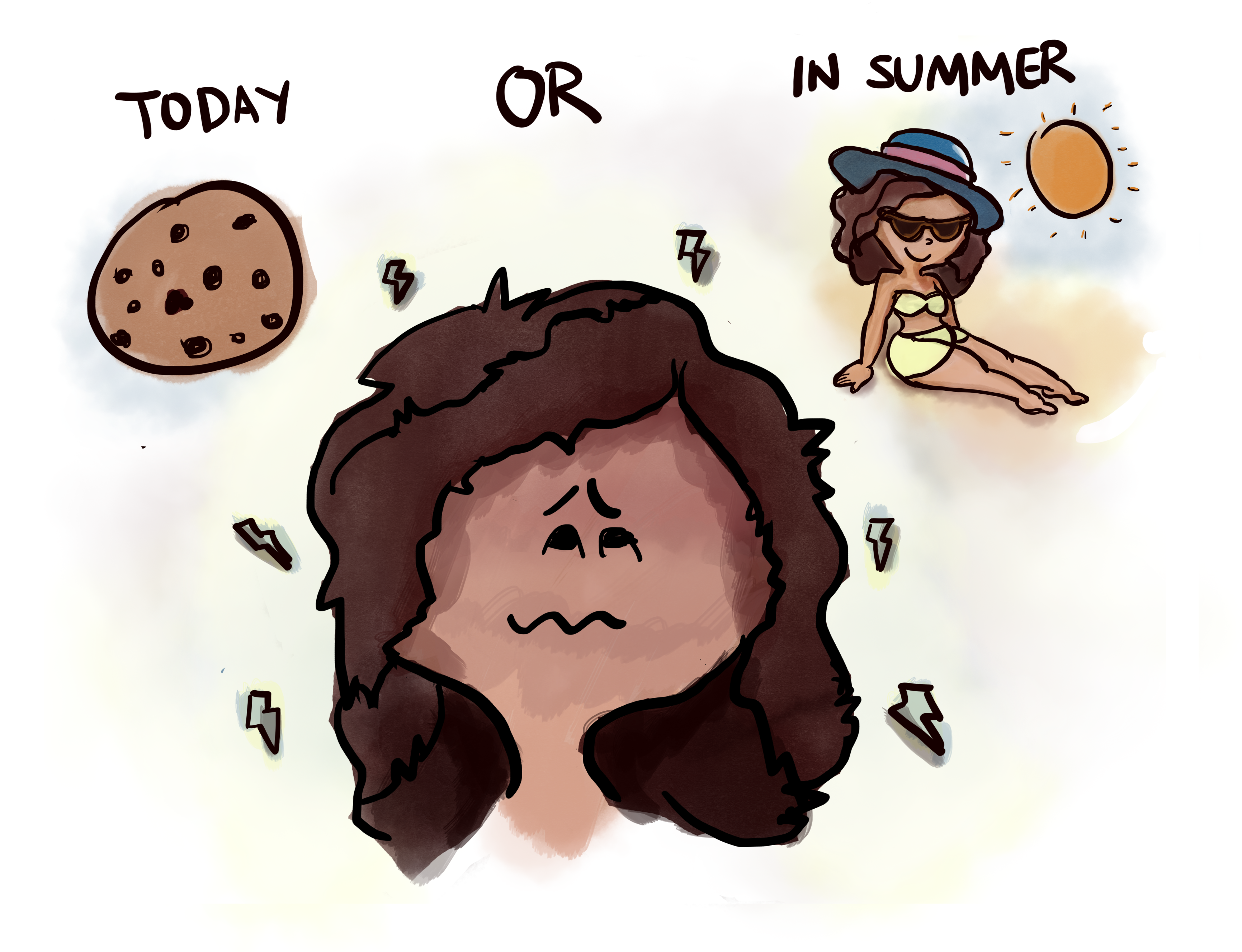
A lot of important decisions that concern our health, wellness, financial security and careers are affected by hyperbolic discounting. All of these come with tons of choices that require trading off immediate pleasure for your future good.
When you procrastinate, you opt for the instant gratification of enjoying yourself rather than the future reward of accomplishing the things you set out to do.
You know setting money aside in a 401K is important for your retirement. Instead, you choose to splurge on an expensive night out with friends which is more fun right now, but might not be the best choice for future you.
Why am I this way?
Well, cognitive biases are evolutionary shortcuts we use (that are really helpful in making decisions!) but don?t always work perfectly.
Our brains were never wired to be truly rational, because there is way too much information in the world for us to process. So we evolved to selectively process information to make decisions quickly.
A caveman did not have to contend with such complex choices as we do today. Caveman Lakshmi never had to choose between eating a pig today vs investing it in a pig 401K that yields 4X returns in the future.
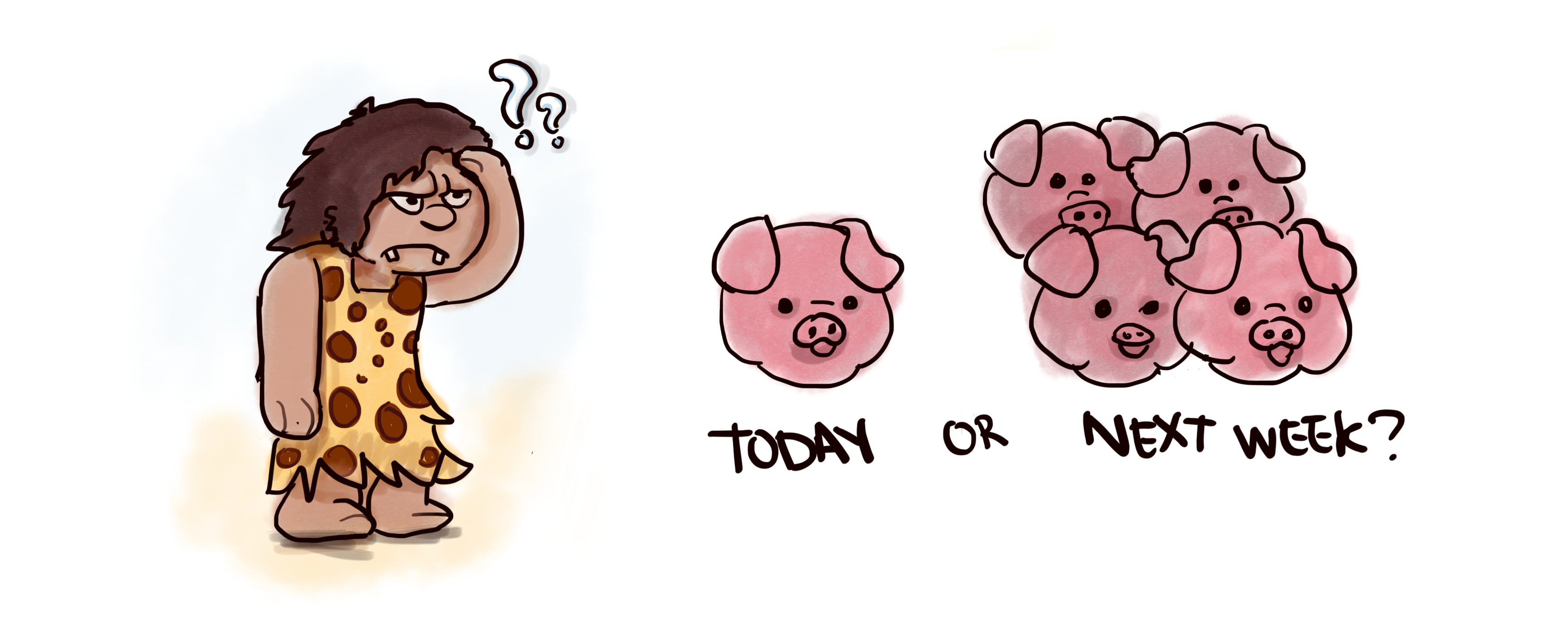
Under harsher living conditions, we didn?t know if we would survive till the end of the day ? so we evolved to choose the immediate things that helped us survive. Our brains are wired to choose immediate sure-thing rewards, not the potential of a future.
So.. am I screwed?
No! There are ways in which you can get better at making choices that are good for you.
1 . Empathize with your future self
You put things off to future you because it?s easy. It?s easy to assume that future you is boundless with energy, drive and motivation.
But unfortunately, that perfect vision of future you is not reality.
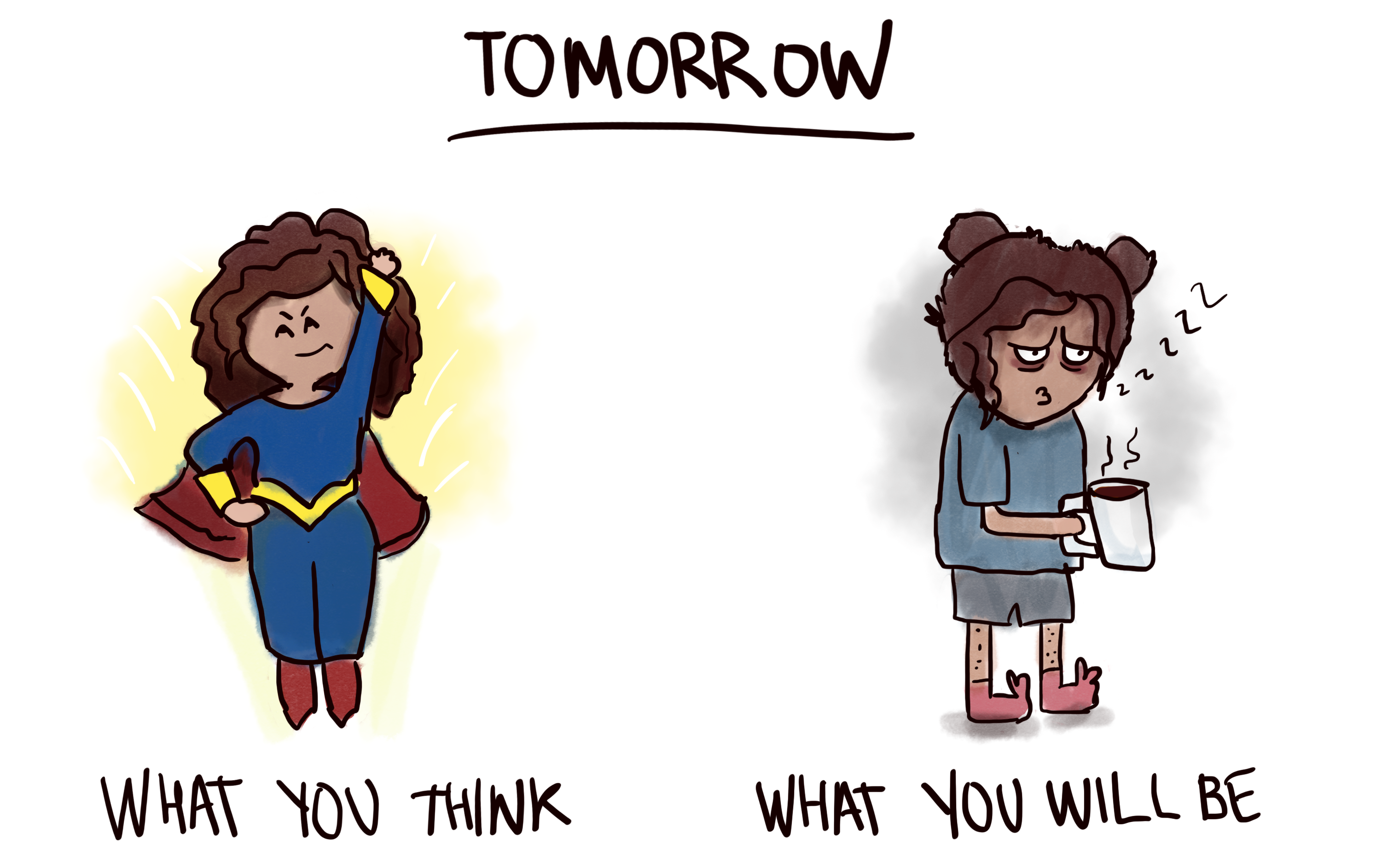
Before putting something off, think about your future mental state ? how tired, drained and sleepy you will be. It helps you evaluate if future you will actually get the job done. Consciously evaluating and making decisions about future you serves as motivation to actually do the things you wanted today.
2. Precommitment
Hyperbolic discounting tells us that we act more patiently when decisions are far away.
Precommitment is a way to to lock future you into decisions, now. You increase your chance of success by removing temptation from future you. Make it hard for your future self to back out.
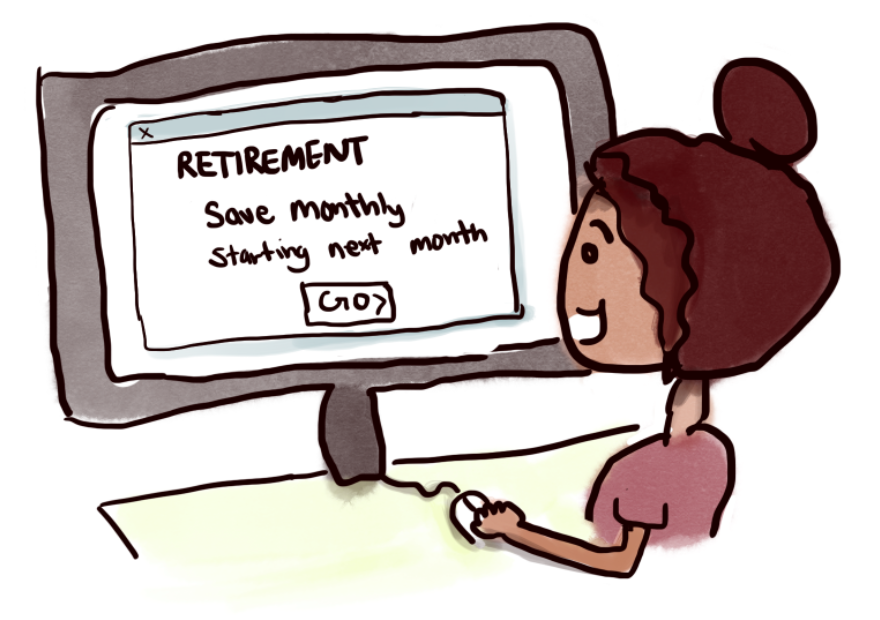 Committing to saving part of your income for retirement
Committing to saving part of your income for retirement
Research shows that people who commit to saving portions of their future paychecks to their retirement end up saving more money than others.
That?s how subscription meal delivery systems like Freshly or Blue Apron work. You subscribe to healthy food that shows up a week later. You make it more likely that you?ll eat healthier in a week?s time.
Other ways of committing to getting something done are planning your day out, or telling someone to hold you accountable.
3. Break down big goals into small manageable chunks
You set big, lofty goals, because they yield massive rewards. However, big goals (like learning to speak Spanish or losing 20 pounds) take a while to achieve – so the big reward only happens far in the future.
Given the choice between watching TV now (which has an immediate, but smaller reward) and working toward your goal (big, but far away reward), you fall victim to hyperbolic discounting and choose the immediate and small reward.
By breaking down big goals into smaller tasks, your reward comes after the completion of each chunk. That way, the reward is no longer a far off possibility but something that is more immediate and guaranteed.
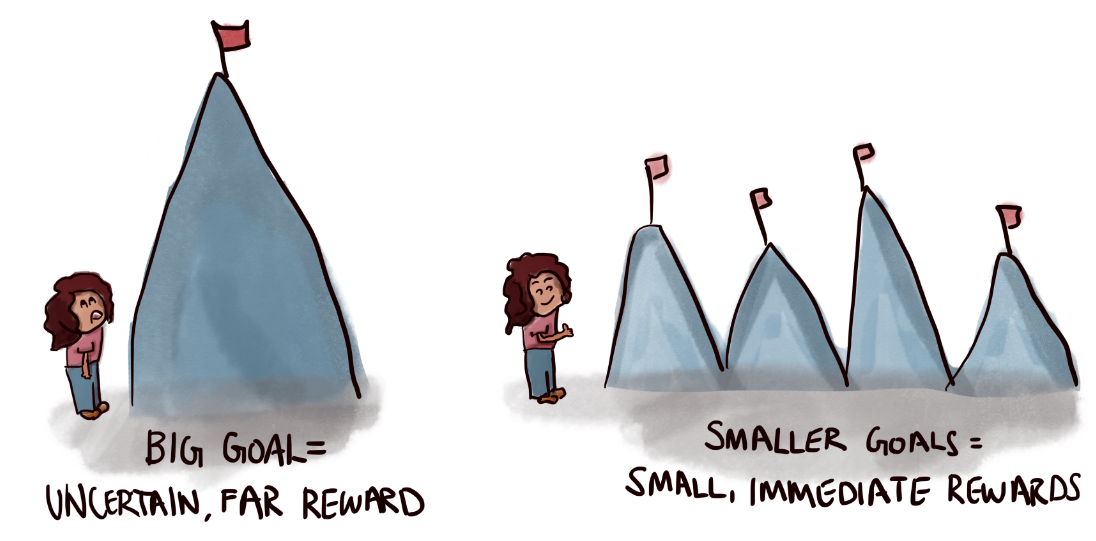
Conclusion
Acknowledging that hyperbolic discounting exists and consciously evaluating trade-offs between now and the future will definitely help you do the right thing. Trust me, future you will be thankful.
Note to future Lakshmi: Please finish writing this conclusion.
If you liked this article or found it useful, please ? it so others can find it too.
